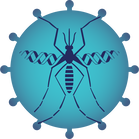Insect Vectors and Public Health
|
My research interests are related to arthropod-borne viruses, which are causing emerging and re-emerging public health issues in many countries. In particular, I am interested in mosquito-virus interactions in order to investigate different aspects related to mosquito-borne diseases. Using a combination of molecular biology and experimental approaches, my work focuses on understanding how virus evolution can lead to virus emergence, how viral symbionts can influence disease transmission, mosquito susceptibility and immune response to viral infections as well as the relationship between virus infection and fitness cost. Despite an increasing toolbox to fight arboviral diseases, basic knowledge of local mosquito populations and efficiency of vector control tools is missing in order to perform targeted and efficient intervention. Therefore, I have recently developed an interest in applied research to reduce the risk of disease introduction and/or burden.
The goal of the lab is to reduce the global burden of vector-borne diseases in human populations through a better overall understanding of the biology and ecology of mosquitoes and of virus-vector interactions. Vector-borne diseases have long been restricted to tropical and subtropical areas but in the recent years, some “exotic” viruses such as dengue, chikungunya and Zika virus have been responsible for locally acquired disease in more temperate zones. In the absence of effective vaccines, the control of these diseases relies mainly on vector control. Recently a group of viruses, known as insect specific viruses (ISVs) has gain some interest due to their potential as a new biological control method. |

